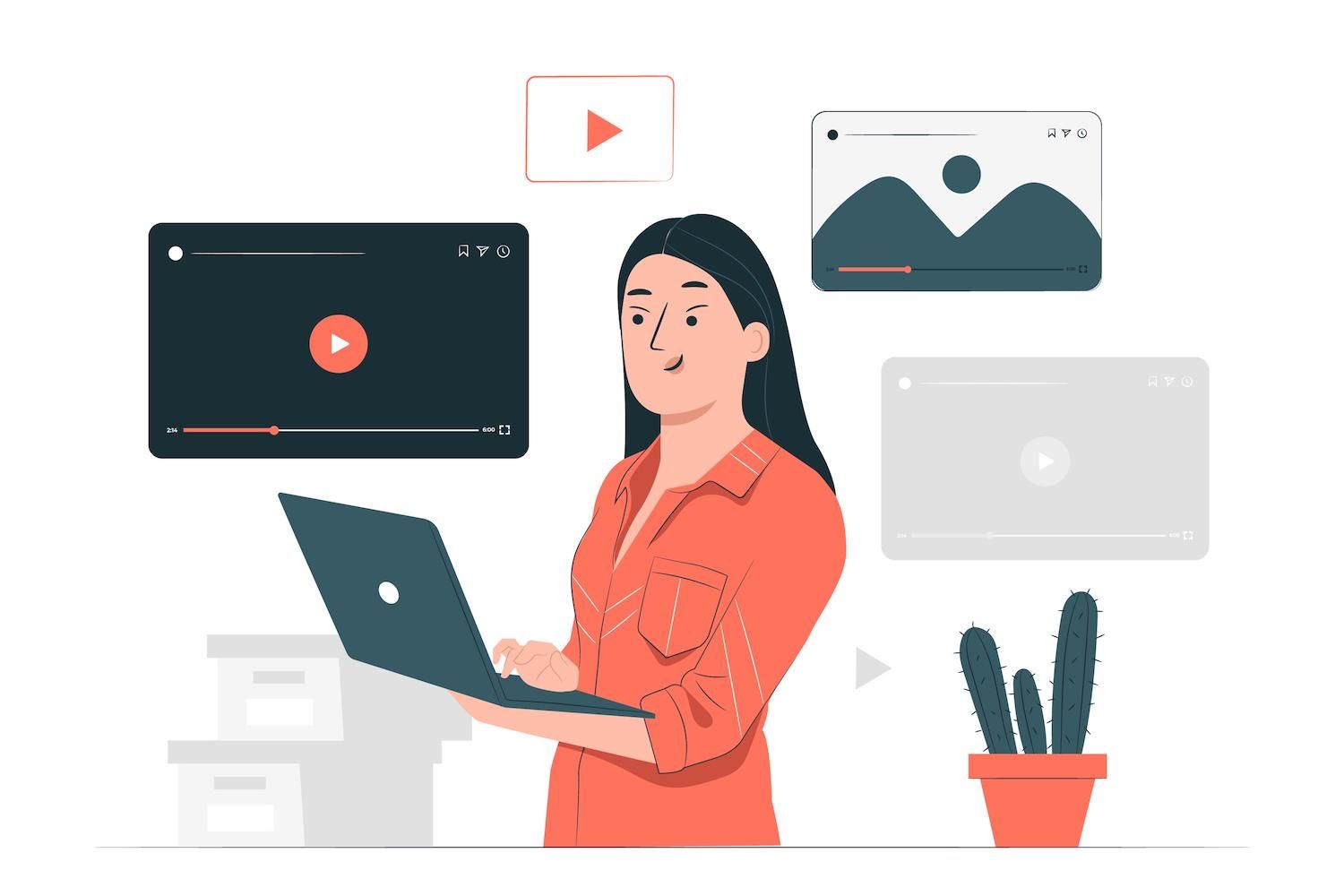How To Use Link Building to Increase Traffic to your website
In this article I'll demonstrate how you can make use of a well-known SEO technique to improve the search engine ranking of your course website. It's known as linking, and when executed correctly, it will help to create a wave of new customers for the online course you offer.
The importance of linking building SEO
So you've done some and you have an idea of the keywords that you want your course to be ranked for. You might have even written articles on your top keywords, but you're still struggling to get your website to appear on search results. Why doesn't it rank?
This could mean hyperlinks
Links are one of the main ranking aspects that are considered by search engines. Not solely the amount of links that matters, but also the quality of those links, and whether they are "followed" (the site instructs Google to take the link into consideration when ranking).
But, Google does not specify how valuable a link from any website is, or how many links your website has. How can you profit from this ranking factor when Google gives you only a few details about it or what it means for each site? There are numerous tools on the web which can assist you. My favorite tool can be Moz is a program that combines a number of different SEO tools in one.
When it comes to link building, and the other unknowns discussed above, one of the best things Moz does is to scan the web for any websites that have links to your site (or your competitors' sites). It then uses this information along with some algorithms as well as some other variables for assigning the Domain Authority value out of 100 to every website (this is a Moz metric that is not a official Google measurement).
By looking at your website's Domain Authority, you can start to build a picture of the value your website has in relation to the quality and quantity of your links. Since we cannot be certain about how the Google algorithm works, we will never know how close the values that are assigned by Moz match the reality. But, Moz is still a helpful guide.
Why you should offer a portion of your class at no cost
Links are crucial for the rank of your site. However, how do you get that other websites to link to your website?
People will also link to your site if they believe your site's worth checking out. If you provide valuable information for free, you are increasing the chance that people find your site fascinating, thus improving the likelihood that other websites will link to your website.
If you're a school provider then you are in a unique place. There is plenty of informative content that people are eager to grab their hands on. Therefore, I encourage you to make available a portion of your content for free. Create a mini-course, or make a few of the lessons in your main course available for an initial trial for example. In providing content that is freely available for everyone, you're increasing the likelihood of people linking to you.
Select a keyword that is not branded that you want to reach
When you begin publishing free content online or asking others to hyperlink to yours, you'll need to pick a specific search term you'd like to be ranked for. The keyword should not be brand-named keyword like 'cookery course' for example, since these kinds of words are ones that will bring new customers to your site.
Once your have decided the most valuable non-branded keyword for your organization, you are able to begin implementing your link building strategy. To illustrate this post, I will continue to use the 'cookery course' as an example.
- URL: jackscooking.com/cookery-course
- Title Tag Title Tag
You must then decide what is going to include on your page. When you place your free course in the body of your webpage, you are providing incentives for other sites to connect to your page. So make sure that the lesson video appears near the top (if not at the most prominent) to make sure that potential users can see your valuable video right away.
Another factor to bare in your mind is that Google gives a greater value for pages that have more text on them. This is because they consider that more text on a page can be beneficial for users. While we've placed a video on top of our page, Google cannot crawl the contents of the video and therefore we must put more words on the site to prove to Google that the page is valuable.
From my experiences, it's helpful to add between 1000 and 2000 pages of text page. An easy method to accomplish this is to include a transcript of the video to the bottom on the webpage. Then if you need more text, add a little more about the benefits from the cooking course, including getting healthier food and having fun cooking.
Get links from sites with high Domain Authority
The first thing you should do is start by identifying websites that have a good Domain Authority that might be willing to link to you.
Make an Google search for 'cookery blogs' and make your list of blogs with an Domain Authority above 30. It is also possible to do a search on 'cookery course compar' or other search words related to cooking courses, and then create a list of websites you come across.
This is an image of one of the very first websites that appear in Google's search results for "cookery blogs", along with the Domain Authory (DA), due to Moz:

There is also Moz to locate all sites that link to any website. Another strategy you can employ is to make the list of your cookery courses' competitors, and check the websites that are linked to these courses. If a website links to a specific cookery school the chances are it's going to be open to the idea linking to other cooking courses too, especially when you offer a sweet deal by offering a no-cost cooking class. It is possible to join Moz for a free 30 day trial and download all the site link profiles you need to in that time.
After you've created your list of sites which might be open to linking to your site, conduct some background research about the site and then try to locate the email address for the website's owner or blog manager. Hunter is a great tool for this.
To increase your chances of receiving a reply, I recommend sending a personalized email to each website owner or blogger. It is important to give them a reason for linking to your site by presenting a message that makes sense to them, and also adds worth to their visitors.
Here is an example of an email that you can make:
Hey [name]
I've been following your blog. You've created some fantastic content! I am really impressed by your post [insert link here] ].
I recently created a free cooking lesson online that I think you will find helpful. Do you have a desire of checking it out, and perhaps reviewing the course in your own blog (if you think that your followers would like it too )?
Let me know if this interests you. I'd be happy to send you the course.
Thanks so much, and keep up the great work!
Jack Saville
It is important not to make a request or mention of a link straight away and to maintain the students' interest in your program. If they promote your course on their site it is likely that they will provide you with a link most likely without having to ask. They may even give a discount or a bonus to those who visit their website.
Make use of your keyword within the text anchor which links to your website
Another thing to keep in mind when link building is anchor texts that you use in the links you receive. When you do get to the stage of soliciting an additional link (or wanting them to change a link they have already offered you) it is important to ensure that the link directs to the exact page that you want to rank for the chosen keywords, and also ensure that the anchor text in the link matches the keywords you are targeting.
So in our cookery course example, we would ask for a link to jackscooking.com/cookery-course from the anchor text 'cookery course'.
By linking to the ranking page using targeted anchor text The site endorses this page specifically for the term "cooking course" in particular'.

High-quality link building helps boost your website traffic and also sales
Having other websites link to your site, particularly those that have a good Domain Authority, will help your website rank better in search engines for your chosen terms. This means that people who search for that term are more likely to find your website and online classes.
It takes time to execute the strategy correctly and begin being ranked on search engines for your keywords, however the end result is an ongoing flow of prospective students to your course. A pretty good price, in my opinion!
Jack Saville is an SEO Specialist at Bynder, a digital company that manages assets.
